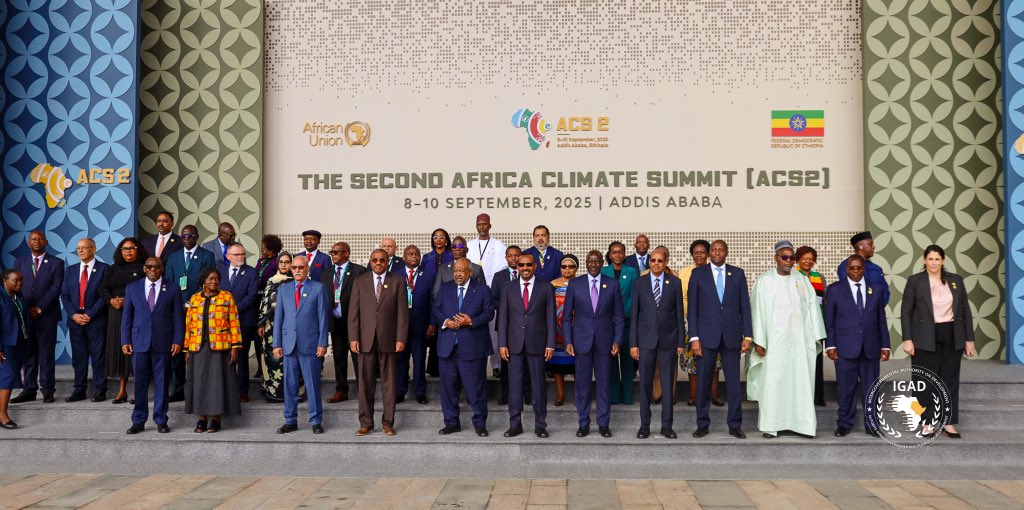Explainer: What the African Climate Summit Means for Somalia

GOOBJOOG NEWS| ADDIS ABABA: The Second African Climate Summit opens today in Addis Ababa, bringing together presidents, ministers, experts, and campaigners to tackle one of the continent’s greatest threats: climate change. For countries like Somalia, the meeting carries particular weight.
Africa contributes less than four percent of global greenhouse gas emissions, yet it is one of the regions most exposed to climate shocks. Rising temperatures, shifting rainfall patterns, prolonged droughts, and sudden floods are eroding livelihoods and fueling humanitarian crises. The summit is designed to give Africa a unified voice on these issues, pressing wealthier nations to honor their commitments on climate financing and pushing for investment in renewable energy and resilience.
Somalia on the Frontline
Somalia arrives at the talks as a country already reeling from climate disasters. Between 2021 and 2023, it endured its worst drought in 40 years, following five consecutive failed rainy seasons. The crisis affected 7.8 million people—about half the country’s population—and contributed to an estimated 43,000 excess deaths in 2022 alone.
Just as the drought eased, El Niño–driven floods in late 2023 displaced more than 1.2 million people and affected 2.5 million overall, washing away crops, homes, and livestock. Today, the United Nations estimates that 3.86 million Somalis are internally displaced, the majority due to climate-related disasters.
What Somalia Wants from the Summit
President Hassan Sheikh Mohamud is expected to use his platform in Addis Ababa to underscore Somalia’s climate priorities. These include:
- Building stronger early warning systems to help communities prepare for disasters.
- Improving water management in both rural and urban areas.
- Securing international support for adaptation and resilience projects.
- Promoting regional cooperation on rivers, weather systems, and displacement crises that cross borders.
Why It Matters for Somalis
For ordinary Somalis, the outcomes of the summit could have very real implications. Increased climate financing could mean stronger flood defenses along the Shabelle and Juba rivers, solar and wind energy projects in off-grid regions, or drought-resistant crops for farmers. It could also strengthen safety nets for pastoralists and the urban poor, who often bear the harshest impacts of climate shocks.
A Rare Chance for Unity
The summit is not expected to solve all of Africa’s climate challenges, but it offers a rare chance for the continent to present a common position ahead of global climate negotiations. For Somalia—contributing almost nothing to global warming but suffering disproportionately from its effects—the hope is that this collective push will translate into tangible support and a chance to build resilience against an uncertain future.